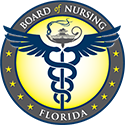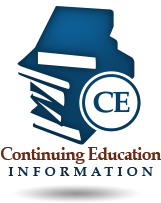HB 139 - Benefits, Training and Employment for Veterans and Their Spouses
Effective Date: July 1, 2023
HB 139 (Full Text)
Summary:
The bill establishes the Office of Veteran Licensure Services within the Florida Department of Health, Division of Medical Quality Assurance to provide information, guidance, direction, and assistance with health care licensure processes for all veterans and their spouses. Additionally, the bill requires Veterans Florida to assist veterans and their spouses with access, training, education, and employment in Florida’s health care professions.
SB 252 - Protection from Discrimination Based on Health Care Choices
Effective Date: June 1, 2023, except as otherwise provided in the act
SB 252 (Full Text)
Summary:
The bill prohibits business entities and governmental entities from requiring a person to provide certain documentation or requiring a COVID-19 test to gain access to, entry upon, or service from such entities or as a condition of contracting, hiring, promotion, or continued employment; prohibiting business and governmental entities from refusing to hire persons, discharging persons, depriving or attempting to deprive persons of employment opportunities, adversely affecting persons with respect to employment, or otherwise discriminating against any person based on knowledge or belief of a person’s vaccination or COVID-19 post infection recovery status or failure to take a COVID-19 test. The bill requires such entities to provide exemptions and reasonable accommodations for religious and medical reasons.
The bill amends several statutes in order to prohibit mask mandates, mandates on emergency use authorizations (EUA) vaccinations, messenger ribonucleic acid (mRNA) vaccinations, and COVID-19 vaccinations, and COVID-19 testing mandates in educational institutions, business entities, and governmental entities. The bill prohibits these entities and institutions from requiring proof of a vaccination with one of the specified types of vaccinations, post infection recovery from COVID-19, or a COVID-19 test to gain access to, entry upon, or service from the entity or institution. The bill also prohibits business and governmental entities from certain employment practices based on an employee’s, or a potential employee’s, vaccination or post infection status or the refusal to take a COVID-19 test. The bill’s provisions relating to mRNA vaccines are repealed on June 1, 2025.
Additionally, the bill prohibits business entities, governmental entities, and educational institutions from requiring a person to wear a mask, a face shield, or any other facial covering that covers the nose and mouth or denying a person access to, entry upon, service from, or admission to such entity or institution or otherwise discriminating against any person based on his or her refusal to wear a mask, face shield, or other facial covering. The bill provides exceptions to these prohibitions for health care providers and practitioners, if the provider or practitioner meets specific requirements established by the bill, and for when a mask or facial covering is required safety equipment. Business entities and governmental entities that violate these provisions are subject to discipline by the Florida Department of Legal Affairs (DLA) while educational institutions are subject to discipline by the Florida Department of Health (DOH). Such discipline may include fines of up to $5,000 for each violation.
The bill establishes requirements for mandating masks in health care settings. The bill requires the DOH and the Agency for Health Care Administration (AHCA) to jointly develop standards for the use of facial coverings in such settings by July 1, 2023, and requires each health care provider and health care practitioner who operates or manages an office to establish policies and procedures for facial coverings by August 1, 2023, that are consistent with the standards adopted by the DOH and the AHCA if they require any individual to wear a mask.
The bill prohibits governmental entities and educational institutions from adopting, implementing, or enforcing an international health organization guideline unless authorized by state law, rule, or executive order issued pursuant to a declared emergency.
The bill also creates and amends several statutes related to the provision of health care for COVID-19 including:
- Prohibiting a hospital from interfering with COVID-19 treatment alternatives that are recommended by a health care practitioner with privileges at the hospital.
- Requiring a health care practitioner to obtain specified informed consent from a patient before prescribing any medication for the treatment of COVID-19 to the patient.
- Prohibiting a pharmacist from being disciplined for properly dispensing medications prescribed for the treatment of COVID-19.
HB 267 - Telehealth Practice Standards
Effective Date: July 1, 2023
HB 267 (Full Text)
Summary:
The bill revises the definition of telehealth to include audio-only telephone call in the telehealth technology authorization statute.
SB 274 - Nursing Education Pathway for Military Combat Medics
Effective Date: Upon becoming law
SB 274 (Full Text)
Summary:
The bill creates the “Pathway for Military Combat Medics Act.” The bill expands the award of postsecondary credit for military training and education courses to promote uniformity in the application of military combat medic training and education toward postsecondary credit (credit) or career education clock hours (clock hours) by public postsecondary educational institutions. Specifically, the bill requires:
- The Department of Education’s Articulation Coordinating Committee (ACC) to convene a workgroup to establish a process for prioritizing and determining postsecondary course equivalencies and the minimum credit or clock hours that must be awarded in an accredited nursing education program for military training and education required for service in specified positions. The process must be approved by the Board of Governors of the State University System (BOG) and the State Board of Education (SBE), with recommendations due to them by December 1, 2023.
- The ACC is to approve a list of postsecondary course equivalencies and credit and clock hours awarded for such courses and training, which must be approved by the BOG and SBE in the statewide articulation agreement.
- State universities, Florida College System (FCS) institutions, and career centers to award credit or clock hours based on the approved list.
Additionally, the bill revises a primary goal of the Florida Center for Nursing (Center) to provide that, under its strategic statewide plan for nursing manpower, the encouragement and coordination of the development of partnerships must include partnerships with hospitals that provide opportunities for nursing students to obtain clinical experience.
HB 391 - Home Health Aides for Medically Fragile Children
Effective Date: June 2, 2023
HB 391 (Full Text)
Summary:
The bill creates the Home Health Aide for Medically Fragile Children Program for family caregivers to receive training and gainful employment. The bill allows a family caregiver to be reimbursed by Medicaid, as a home health aide for medically fragile children (HHAMFC), for care provided to a relative who is 21 years old or younger with an underlying physical, mental, or cognitive impairment, and is eligible to receive skilled care or respite care services under the Medicaid program. The bill requires AHCA to establish a fee schedule with a family caregiver reimbursement rate of $25 per hour for up to 8 hours per day. The bill requires AHCA, in consultation with the Florida Board of Nursing, to approve HHAMFC training programs developed by home health agencies which meet certain criteria.
SB 558 - Certified Nursing Assistants
Effective Date: July 1, 2023
SB 558 (Full Text)
Summary:
The bill creates a new designation of “qualified medication aide” (QMA) for certified nursing assistants (CNA) who work in a nursing home and meet specified licensure and training requirements. The bill allows a nursing home to authorize a registered nurse (RN) working in the nursing home to delegate medication administration to a QMA who is working under the direct supervision of the RN.
In order to be designated as a QMA, a CNA must hold a clear and active certification as a CNA for at least one year preceding the delegation; complete 40 hours of training that consists of the six hour training course currently required for a CNA to administer medication in a home health setting and a 34-hour course developed by the Florida Board of Nursing specific to QMAs; and successfully complete a supervised clinical practice in medication administration conducted in the nursing home. The bill amends several sections of law related to the delegation of tasks to CNAs to conform to the changes made in the bill. The bill also specifies that CNAs performing the duties of a QMA may not be counted toward staffing requirements for nursing homes.
HB 1387 - Department of Health
Effective Date: July 1, 2023
HB 1387 (Full Text)
Summary:
The bill exempts individuals who have successfully completed a board-approved certified nursing assistant (CNA) training program within six months of applying for certification from the clinical skills portion of the licensure exam.
The bill conforms Florida law to the new FDA rule by eliminating now-preempted over the counter (OTC) hearing aid regulation. The bill distinguishes between OTC hearing aids and prescription hearing aids, retaining regulation of the latter. The bill amends the statute regulating distribution of hearing aids by hearing aid specialists and audiologists to limit its application exclusively to prescription hearing aids. The bill exempts individuals exclusively dispensing OTC hearing aids from regulation. This aligns Florida law with the federal rule which specifies that states may not establish regulatory measures or require licensure for individuals who dispense OTC hearing aids. The bill makes conforming changes throughout Chapters 468 and 484, F.S., to specify that regulations apply only to prescription hearing aids. The bill limits the consumer protections in current law to only apply to prescription hearing aids, and not to OTC hearing aids. The bill also specifies that the prohibition on distributing of hearing aids by mail applies only to prescription hearing aids.
The bill authorizes autonomous advanced practice registered nurses and adds board-eligible or board-certified family medicine physicians as health care practitioners eligible to certify brain deaths under certain conditions.
SB 1580 - Protections of Medical Conscience
Effective Date: July 1, 2023
SB 1580 (Full Text)
Summary:
The bill establishes rights of conscience for health care providers and payors. The bill provides legislative intent and provides that a health care provider or payor has the right to optout of participation in or payment for a health care service on the basis of a conscience-based objection (CBO). The bill establishes notification requirements for opting-out and prohibits a payor from opting-out of paying for a service it is contractually obligated to cover during a plan year. The bill also specifies that CBOs are limited to specific health care services, that the bill may not be construed to waive or modify any duty a provider or payor may have for other health care services that do not violate a provider’s or payor’s conscience, and that nothing in the bill allows a health care provider or payor to opt-out of providing health care services to any patient or potential patient because of that patient’s or potential patient’s race, color, religion, sex, or national origin.
The bill prohibits health care providers from being discriminated against or suffering adverse action for declining to participate in a health care service based on a CBO. The bill also provides whistle-blower protections for providers or payors in specific situations and specifies that the bill may not be construed to override any requirement to provide emergency medical treatment in accordance with federal or state law.
The bill allows health care providers or payors to file complaints of violations to the Attorney General (AG) and authorizes the AG to bring a civil action for appropriate relief. The bill also provides civil immunity for health care providers and payors solely for declining to participate in a health care service on the basis of a conscience-based objection, with some exceptions.
Additionally, the bill prohibits a board, or the Florida Department of Health (DOH) if there is no board, from taking disciplinary action against a health care practitioner solely because he or she has spoken or written publicly about a health care service or public policy, including on a social media platform, as long as the speech or written communication does not provide advice or treatment to a specific patient or patients and does not separately violate any other applicable law or rule. The bill also authorizes a board within the DOH to revoke approval of any specialty board for revoking the certification of an individual for the same reason.
If you’d like to view all 2023 bills impacting health care professions, please go to www.flhealthsource.gov/2023-bills






